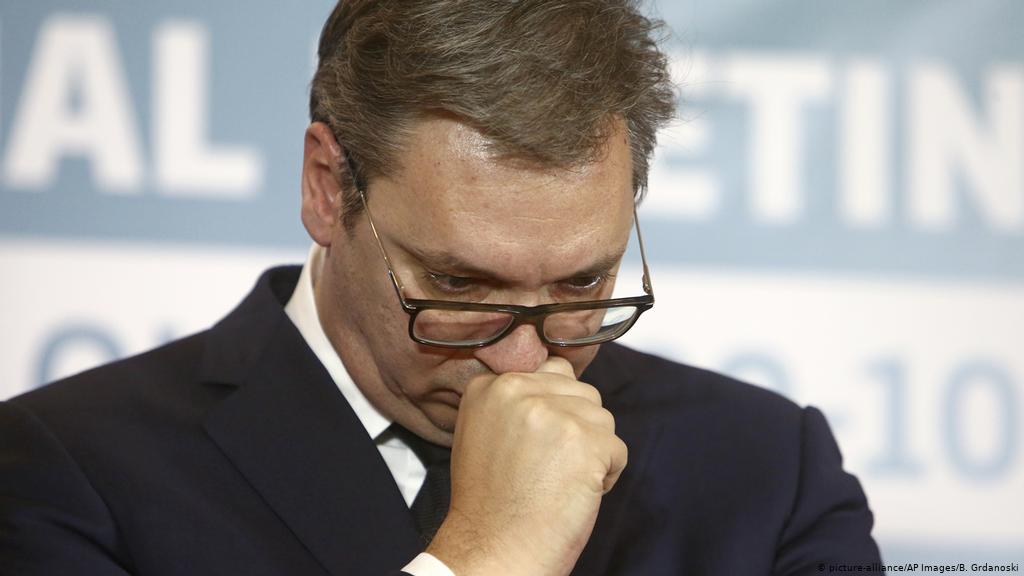
Diplomatic relations between Croatia and Serbia quickly soured on Sunday after Zagreb banned what Serbia said was meant to be a private visit by President Aleksandar Vucic, to the site of a notorious World War II concentration camp in Croatia, where thousands of Serbs had perished.
The diplomatic incident showed that the normalisation of relations between the erstwhile foes, whose ties were severed during Croatia’s 1991-95 war of independence from Belgrade, is still thin.
Serbian officials explained that, following a note from EU member Croatia, Vučić cancelled the visit “for the sake of good relations.”
Serbian newspaper Danas published the note Croatia sent to Serbia, which reminded Belgrade that every visit by a foreign official needs to be coordinated by the two sides.
“The fact that Croatia has not been officially notified about the visit is unacceptable,” Croatia’s foreign ministry said.
It also pointed out that any visit of a high foreign official to the Jasenovac memorial site “cannot be of private nature… Once the conditions for such a visit have been met, the visit will be agreed through the usual diplomatic channels.”
Furthermore, Croatian Foreign Minister Gordan Grlić-Radman said that “the president of a country is a protected person and such an arrival requires the involvement of the Croatian authorities.”
Serbian Interior Minister Aleksandar Vulin responded that all Croatian officials would now have to announce and explain their visit or passage through Serbia and would be placed under a special control regime.
Deputy Prime Minister Zorana Mihajlović, also in charge of mining and energy, cancelled her official trip to Zagreb to protest Croatia’s ban.
Some Croatian media speculated that Vučić’s sudden decision to pay a private visit to Jasenovac was designed to distract public attention from the news that a Ukrainian-owned plane carrying 11 tonnes of Serbian weapons was destined for Bangladesh had crashed in northern Greece.
Radio Free Europe reported that Serbian Defence Minister Nebojsa Stefanović had confirmed that the weapons on board the plane were manufactured in Serbia and that everything was done “in accordance with international rules.”
“In any case, it is difficult to understand what would have been the purpose of Vučić’s failed private visit, but it is clear that it would not bring any good to the bilateral relations of Croatia and Serbia, or to the Serb community in Croatia,” said a column in the Croatian news website Telegram.

